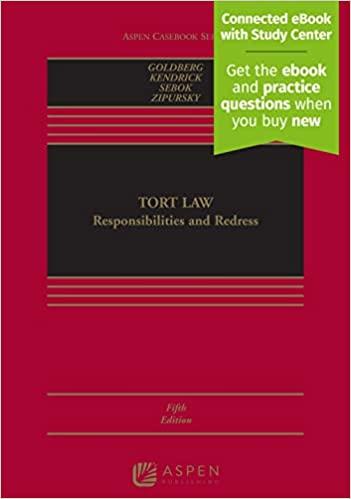Question
According to Banisar (2011), barriers to whistleblowing can be grouped under three main categories: (1) fear of retaliation; (2) legal liability; and (3) cultural barriers.
According to Banisar (2011), barriers to whistleblowing can be grouped under three main categories: (1) fear of retaliation; (2) legal liability; and (3) cultural barriers.
Studies show that blowing the whistle poses a risk for the person disclosing the information due to: the psychological prejudice people have towards whistleblowers, and. the lack of legal protection. The biggest problem for an employee whistle blowing for the whistle blower is the possibility of getting fired. Along with that there are other possibilities like being shunned, cast into the out-group or ridiculed. One of the disadvantages of whistleblowing is that it can lead to a breakdown of trust. Companies typically prefer that employees use internal communication systems if they are uncomfortable with activities going on in their departments or the company. While legal protection is helpful, there are other ramifications you may want to consider when determining whether or not to bring a qui tam lawsuit. You can still lose your job. ... You're blacklisted. ... You may face legal consequences. ... You potentially violate professional and contractual obligations.
Employers may fire a whistleblower, or pressure them into quitting. Employees who don't quit may be bullied, demoted, isolated or harassed. Some whistleblowers crack, becoming depressed, suffering panic attacks or drinking to cope with the pressure. Ignoring concerns over unlawful practices in the workplace or allowing a culture of fear about raising such concerns can have a negative impact on employee engagement and, as a result, productivity. It can also lead to higher staff turnover and increased recruitment costs. If an individual discovers that the company they work for is behaving unethically, then it is the moral duty of that individual to strive to address the unethical behavior. ... A simple formula: whistleblowing is exactly as ethical as the practices it exposes are unethical. Whistle blowing means calling attention to wrongdoing that is occurring within an organization. ... reporting wrongdoing or a violation of the law to the proper authorities. such as a supervisor, a hotline or an Inspector General. refusing to participate in workplace wrongdoing. testifying in a legal proceeding. Whistle blowing means calling attention to wrongdoing that is occurring within an organization. ... reporting wrongdoing or a violation of the law to the proper authorities. such as a supervisor, a hotline or an Inspector General. refusing to participate in workplace wrongdoing. testifying in a legal proceeding
Discuss Whistleblowing problems, such as the ones I mentioned above: fear of retaliation; legal liability; and cultural barriers. Thorough thoughts would be much appreciated!
Step by Step Solution
There are 3 Steps involved in it
Step: 1

Get Instant Access to Expert-Tailored Solutions
See step-by-step solutions with expert insights and AI powered tools for academic success
Step: 2

Step: 3

Ace Your Homework with AI
Get the answers you need in no time with our AI-driven, step-by-step assistance
Get Started


